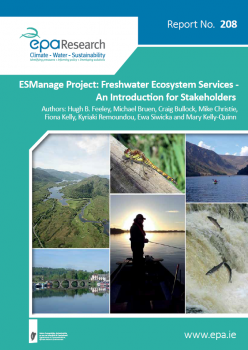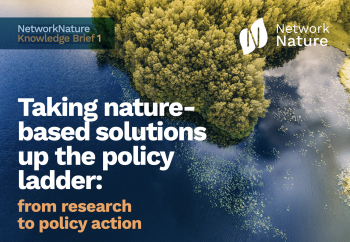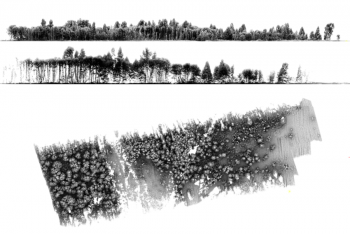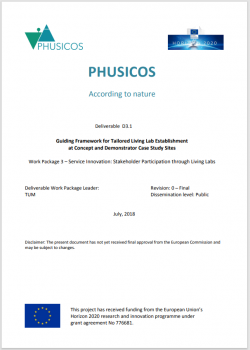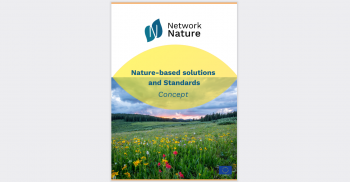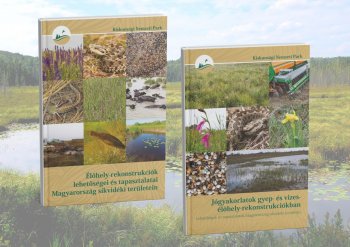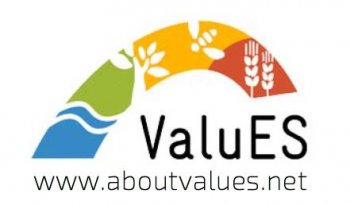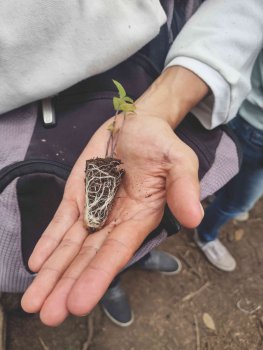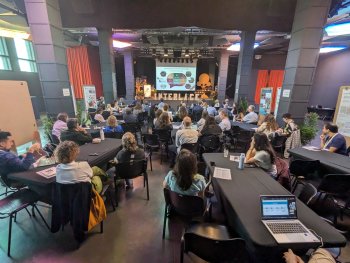Marketplace
Conexus Life-Lab factsheet series - Monitoring of socio-environmental services of urban green spaces
In recent years, the City of Barcelona has demonstrated its intention of increasing and improving greenery and biodiversity at the service of citizens through a series of policies, plans, measures, and other initiatives. In this pilot, the social and environmental services provided by urban green
- Document
Training for Forest Operators in Intervention Techniques to Enhance Carbon Credit Generation
This empowered them to become self-sufficient in executing specific interventions in the designated GO CO2MARCHE project area and equipped them for future additionality projects in other regions.
ESManage Project: Freshwater Ecosystem Services - An Introduction for Stakeholders
The ESManage Literature Review for Stakeholders provides an overview of information on the ecosystem services framework, the role of biodiversity in ecosystem service provision, and how the concept aligns with the objectives of current policy and legislation to inform management of freshwater
NetworkNature Knowledge Brief
The brief provides an overview of the NbS knowledge gaps resulting from an analysis conducted by NetworkNature of a large number of publications, online consultations and dialogues with stakeholders. To reflect the potential of NbS from an environmental, economic and societal perspective, this
Carbomap F-LUX: Lidar information acquired from drones, and processed in real-time
High-performance lidar scanner for environmental surveys. Flown on a fixed wing UAV with advanced specification. Long duration (8 hrs) and long range (1,000 km). Real time lidar data processing: by the time the drone lands, your inventory information inhand!
Nature-based solutions in the GrowGreen cities: videos
As the evidence base on the role and benefits of nature-based solutions (NbS) grows rapidly, these solutions are featuring with increasing prominence in global climate change policy, stressing the importance of their implementation in urban environments. The Horizon2020 project GrowGreen has
Guiding Framework for Tailored Living Lab Establishment
Multi-stakeholder participation is an overarching issue of PHUSICOS and, as such, forms a foundation to foster innovation at all levels and at all case study sites. Workpackage 3 is dedicated to employ a Living Lab approach as key mechanism of local stakeholder involvement for the purpose of
Nature4Cities - NbS Projects Implementation Handbook
This Handbook was made for government officials, practitioners or project coordinators working in the public domain and needing support in their NbS project implementation. It will be useful especially for those who are at the early stages of developing climate adaptation and mitigation
Visionary and integrated solutions to improve well-being and health in cities: Clustering Activities - Joint Manifesto
Report The following is a joint manifesto from four sister projects which calls on European cities to launch initiatives that offer visionary and integrated solutions at the intersection of social, cultural, digital and nature-based solutions (NBS) to increase the health and well-being of
Brief: NetworkNature Semester - Nature-based Solutions and Standards
Nature-based solutions (NbS) have the potential to tackle many of the the wicked problems we are faced with, namely climate, biodiversity and land degradation crises while delivering on sustainable development goals (SDGs) and the many complementary goals on the European and international
Not Simply Green: Nature-Based Solutions as a Concept and Practical Approach for Sustainability Studies and Planning Agendas in Cities
The concept of a nature-based solution (NbS) has been developed in order to operationalize an ecosystem services approach within spatial planning policies and practices, to fully integrate the ecological dimension, and, at the same time, to address current societal challenges in cities. It exceeds
Video: Unveiling of new edible garden in South Thamesmead, London
With the help of input and design ideas from local residents, CLEVER City London, alongside Peabody and its appointed design partner, muf architecture/art, has successfully delivered its first Nature-based Solution: an edible garden in South Thamesmead. To celebrate, the CLEVER Cities team
Protected Planet
The World Database on Protected Areas (WDPA) is a joint project between the United Nations Environment Programme (UNEP) and the International Union for Conservation of Nature (IUCN), managed by UNEP World Conservation Monitoring Centre (UNEP-WCMC).The dataset described here shows the global
EmissionFactors.com
EmissionFactors.com taps into the most powerful environmental database in the world, powered by Ecometrica. Over the years, we've spent thousands of hours searching for and cataloguing emission and conversion factors and still do it on a regular basis. The accuracy of our data is very
BIODIVERZITÁS: Élőhely-rekonstrukciók lehetőségei és tapasztalatai, valamint jógyakorlat gyűjtemény Magyarország síkvidéki területeihez kapcsolódóan
Az EU természet-helyreállítási rendeletének életbe lépése miatt időszerű egy, az ökoszisztémák széles körét érintő élőhely-rekonstrukciókkal foglalkozó kiadvány, amely Magyarországra nézve hiánypótló műnek számít. Az élőhely-rekonstrukció segédlet a síkvidéki nyílt élőhelyekkel (gyepekkel, vizes
GIZ ValuES - Fact sheet on training on Payments for Ecosystem Services (PES)
One specific instrument to capture the value of ecosystem services are payments for ecosystem services (PES). A PES scheme can be designed in various different ways, based on the intended outcomes and target areas. In this training module, the basic characteristics of a PES scheme as well as
TELEPÜLÉSI KLÍMAADAPTÁCIÓ: Útmutató a klímaváltozáshoz való alkalmazkodáshoz
A Berlin-Budapest klímaadaptációs projekt keretén belül elkészült útmutató, amely az önkormányzatokat támogatja az ember által okozott éghajlatváltozáshoz való alkalmazkodást lokálisan. A szöveg rávilágít arra, hogy helyi szinten is mennyire fontos a stratégia tervezés ahhoz, hogy egy település
Conexus Life-Lab factsheet series - Nature-based Solutions to restore urban hydro-social systems
The Bogotá Life-Lab focuses on restoration actions and capacity-building activities to support peri-urban communities. These activities aim to protect forest and wetland ecosystems, while strengthening communities in border territories, and social acceptance of NbS. Community participation and co-
INTERLACE final conference videos
Plenary sessions from the INTERLACE Final Conference: Reimagining Urban Spaces: Nature-Based Solutions for Inclusive Transformations in Europe and Latin America. 1st October 2024, Granollers, Catalonia, Spain.
- Document
Specific silvicultural itineraries to optimize the production of quality timber and economic yield of Pinus pinaster.
Four silvicultural scenarios have been created considering the wood quality: - Standard scenario (M2): Involves three thinnings and a final felling. - Short rotation scenario with subsidies (M4): Includes one thinning and a final felling. - No management scenario (M8): Only comprises a final
- ‹ previous
- 25 of 45
- next ›


